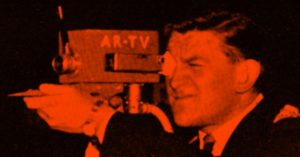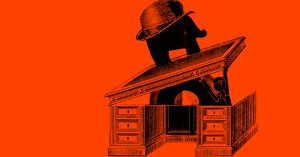Wired-up for service
Electrical maintenance: the beating heart of Television House and Wembley

Eververy body accepts that the light will go on when the switch is flicked. Most people take for granted that the camera and telecine equipment of the company will function. Yet behind the light and the servicing of the equipment is a highly skilled group of busy people. Here adrian newton tells the basic facts of electrical and electronic maintenance without whose services the company could not operate.

‘Maintaining all the electrical equipment and installations at Wembley and Television House could be compared with the old story of looking after the Forth Bridge: when you finish, you have to go back to the beginning and start all over again’, says Bernie Finch, electrical supervisor. There are 62 electricians, 16 covering maintenance at Wembley and Television House. The other 46 cover all studio production lighting.
To many people the world of electronics, or just plain electricity means no more than being satisfied when the light comes on at the flick of a switch, or the television warms up and presents its picture without problem. Bernie Finch’s world, however, covers far more than just looking after light switches. ‘In the section, we’re responsible for ventilation, air conditioning, supplying power to outside broadcast units, and for all lighting, both for offices and studios. Really, we’re supplying a service to everyone.’
The power which Bernie and his team watch over, totals 2,800 kilowatts – enough to meet the needs of a small town. The intake of studio 5 alone accounts for 1,500 kW, which would supply a medium-sized village with light and heat.
‘When a company such as Rediffusion depends so much on electrical power, you have to be prepared for any emergency. For instance, when a recent power cut blacked out Television House and a large slice of the city, it was only the fact that there is an emergency alternator installed in the basement of Television House that saved the day. Within 40 seconds of the power cut the alternator was switched on, programmes could continue and essential lighting was restored. The alternator itself runs on diesel fuel, and can supply power for two days. Fully loaded, it could run for weeks.’
A little known aspect of the electrical section’s work is the supplying of special effects – especially explosions. Bernie himself has been responsible for many of the explosions that have wrecked cars in some of Rediffusion’s series.
It could be said that where the work of Bernie Finch’s section finishes, Jim Crossley’s begins. Jim Crossley is supervisory engineer (maintenance), and his men service the company’s technical equipment.
Says Jim Crossley: We look after the internal workings of cameras, sound, telecine, and film department equipment, monitors and master controls. We also maintain the outside broadcast equipment.
‘Outside broadcasts are perhaps one of the most interesting aspects of electronic maintenance. During the last general election, we converted a railway carriage on the train bringing Mr. Wilson back from Liverpool into a control room and video taped an interview which was shown during the election programme before the train had arrived in London.
‘The outside broadcast coverage of the World Cup series brought special problems as for Eurovision, all programmes have to go out on the 625 line system. Our equipment is, of course, 405 line, and we had to do a conversion job. I think that it’s to the credit of our people that the coverage went so well.’
Many programme gimmicks are designed and made by electronic maintenance. Requests vary from a simple clapometer (applause level indicator) for ‘Double Your Money’ or cues and communications for creepie-peepie cameras to the very complex. These have included designing and making a whole range of special sound equipment in a month for ‘Ready, Steady, Go!’ and rigging Studio 9 for a general election programme with all the hundreds of extra facilities required.
The main job, however, is to maintain the technical equipment. The company has probably lost less air time and had fewer faults on transmission than anybody else and that is the highest tribute to the work of the maintenance sections.
About the author
We've not been able to find any information about Adrian. Did you know him? Please let us know in the comments.




